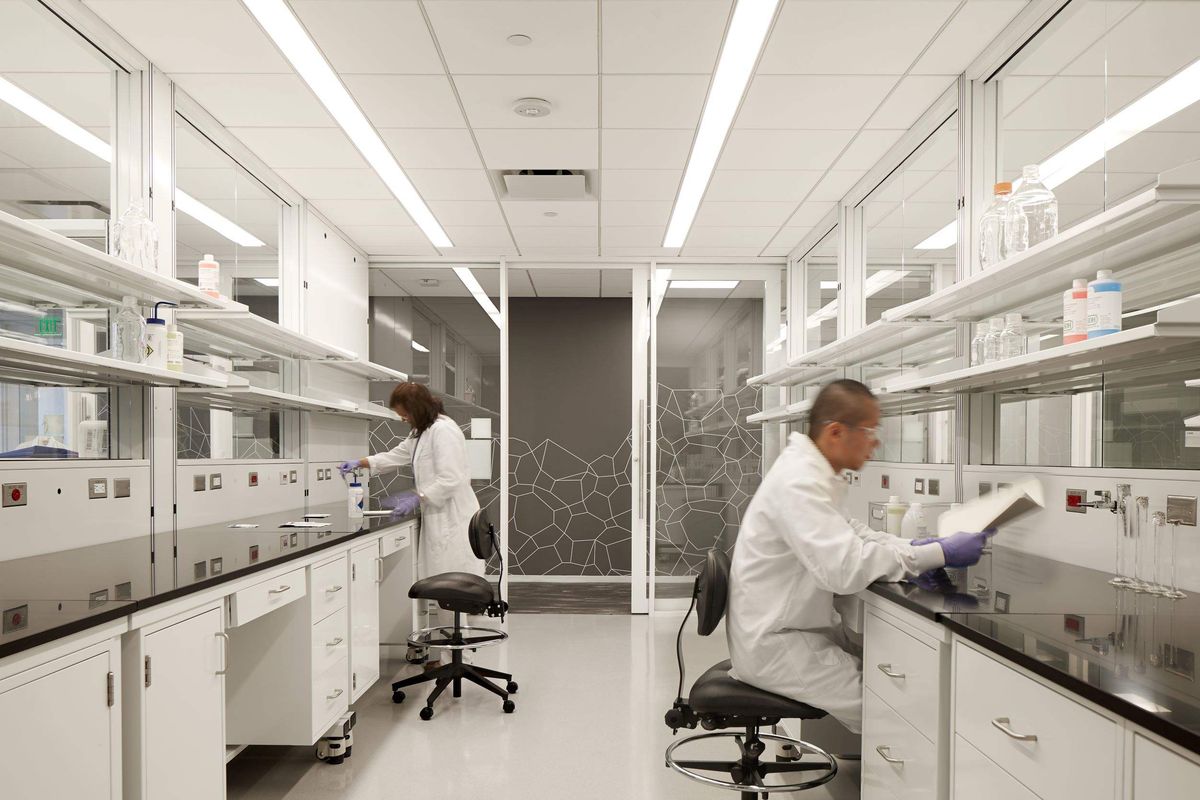Meet 6 mentors who are helping the Houston startup scene flourish
meet the finalists
Few founders launch successful startups alone — experienced and insightful mentors often play an integral role in helping the business and its founders thrive.
The Houston startup community is home to many mentors who are willing to lend an ear and share advice to help entrepreneurs meet their goals.
The Mentor of the Year category in our 2025 Houston Innovation Awards will honor an individual like this, who dedicates their time and expertise to guide and support budding entrepreneurs. The award is presented by Houston City College Northwest.
Below, meet the six finalists for the 2025 award. They support promising startups in the medical tech, digital health, clean energy and hardware sectors.
Then, join us at the Houston Innovation Awards this Thursday, Nov. 13 at Greentown Labs, when the winner will be unveiled. The event is just days away, so secure your seats now.
Anil Shetty, InformAI
Anil Shetty serves as president and chief medical officer for biotech company Ferronova and chief innovation officer for InformAI. He's mentored numerous medical device and digital health companies at seed or Series A, including Pathex, Neurostasis, Vivifi Medical and many others. He mentors through organizations like Capital Factory, TMC Biodesign, UT Venture Mentoring, UTMB Innovation and Rice's Global Medical Innovation program.
"Being a mentor means empowering early-stage innovators to shape, test, and refine their ideas with clarity and purpose," Shetty says. "I’m driven by the opportunity to help them think strategically and pivot early before resources are wasted. At this critical stage, most founders lack the financial means to bring on seasoned experts and often haven’t yet gained real-world exposure. Mentorship allows me to fill that gap, offering guidance that accelerates their learning curve and increases the chances of meaningful, sustainable impact."
Jason Ethier, EnergyTech Nexus
Jason Ethier is the founding partner of EnergyTech Nexus, through which he has mentored numerous startups and Innovation Awards finalists, including Geokiln, Energy AI Solutions, Capwell Services and Corrolytics. He founded Dynamo Micropower in 2011 and served as its president and CEO. He later co-founded Greentown Labs in Massachusetts and helped bring the accelerator to Houston.
"Being a mentor means using my experience to help founders see a clearer path to success. I’ve spent years navigating the ups and downs of building companies, struggling with cash flow, and making all the mistakes; mentoring gives me the chance to share those lessons and show entrepreneurs the shortcuts I wish I’d known earlier," Ethier says. "At Energytech Nexus, that role goes beyond just helping individual founders — it’s about creating a flywheel effect for Houston’s entire innovation ecosystem."
Jeremy Pitts, Activate Houston
Jeremy Pitts serves as managing director of Activate Houston, which launched in Houston last year. He was one of the founders of Greentown Labs in the Boston area and served in a leadership role for the organization between 2011 and 2015. Through Activate, he has mentored numerous impactful startups and Innovation Awards finalists, including Solidec, Coflux Purification, Bairitone Health, Newfound Materials, Deep Anchor Solutions and others.
"Being a mentor to me is very much about supporting the person in whatever they need. Oftentimes that means supporting the business—providing guidance and advice, feedback, introductions, etc," But just as important is recognizing the person and helping them with whatever challenges they are going through ... Sometimes they need a hype man to tell them how awesome they are and that they can go do whatever hard thing they need to do. Sometimes they just need an empathetic listener who can relate to how hard these things are. Being there for the person and supporting them on their journey is key to my mentorship style."
Joe Alapat, Liongard
Joe Alapat founded and serves as chief strategy officer at Houston software company Liongard and chief information officer at Empact IT, which he also owns. He mentors through Founder Fridays Houston Group, Software Day by Mercury Fund, SUPERGirls SHINE Foundation, Cup of Joey and at the Ion. He's worked with founders of FlowCare, STEAM OnDemand, Lokum and many other early stage startups.
"Being a mentor to me means unleashing an individual’s 10x—their purpose, their ikigai (a Japanese concept that speaks to a person’s reason for being)," Alapat says. "Mentoring founders in the Houston community of early stage, high-growth startups is an honor for me. I get to live vicariously through a founder’s vision of the future. Once they show me that compelling vision, I’m drawn to bring the future forward with them so the vision becomes reality with a sense of urgency."
Neal Dikeman, Energy Transition Ventures
Neal Dikeman serves as partner at early stage venture fund Energy Transition Ventures, executive in residence at Greentown Labs, and offices in and supports Rice Nexus at the Ion. He mentors startups, like Geokiln, personally. He also mentored Helix Earth through Greentown Labs. The company went on to win in the Smart Cities, Transportation & Sustainability contest at SXSW earlier this year. Dikeman has helped launch several successful startups himself, most recently serving on the board of directors for Resilient Power Systems, which was acquired by Eaton Corp for $150 million.
"Founders have to find their own path, and most founders need a safe space where they can discuss hard truths outside of being 'on' in sales mode with their team or board or investors, to let them be able to work on their business, not just in it," Dikeman says.
Nisha Desai, Intention
Nisha Desai serves as CEO of investment firm Intention and mentors through Greentown Labs, TEX-E, Open Minds, the Rice Alliance Clean Energy Accelerator, Avatar Innovations and The Greenhouse. She currently works with founders from Solidec, Deep Anchor Solutions, CLS Wind and several other local startups, several of which have been nominated for Innovation Awards this year. She's served a board member for Greentown Labs since 2021.
"When I first started mentoring, I viewed my role as someone who was supposed to prevent the founder from making bad decisions. Now, I see my role as a mentor as enabling the founder to develop their own decision-making capability," Desai says. "Sometimes that means giving them the space to make decisions that might be good, that might be bad, but that they can be accountable for. At the end of the day, being a mentor is like being granted a place on the founder's leadership development journey, and it's a privilege I'm grateful for."
---
The Houston Innovation Awards program is sponsored by Houston City College Northwest, Houston Powder Coaters, FLIGHT by Yuengling, and more to be announced soon. For sponsorship opportunities, please contact sales@innovationmap.com.





